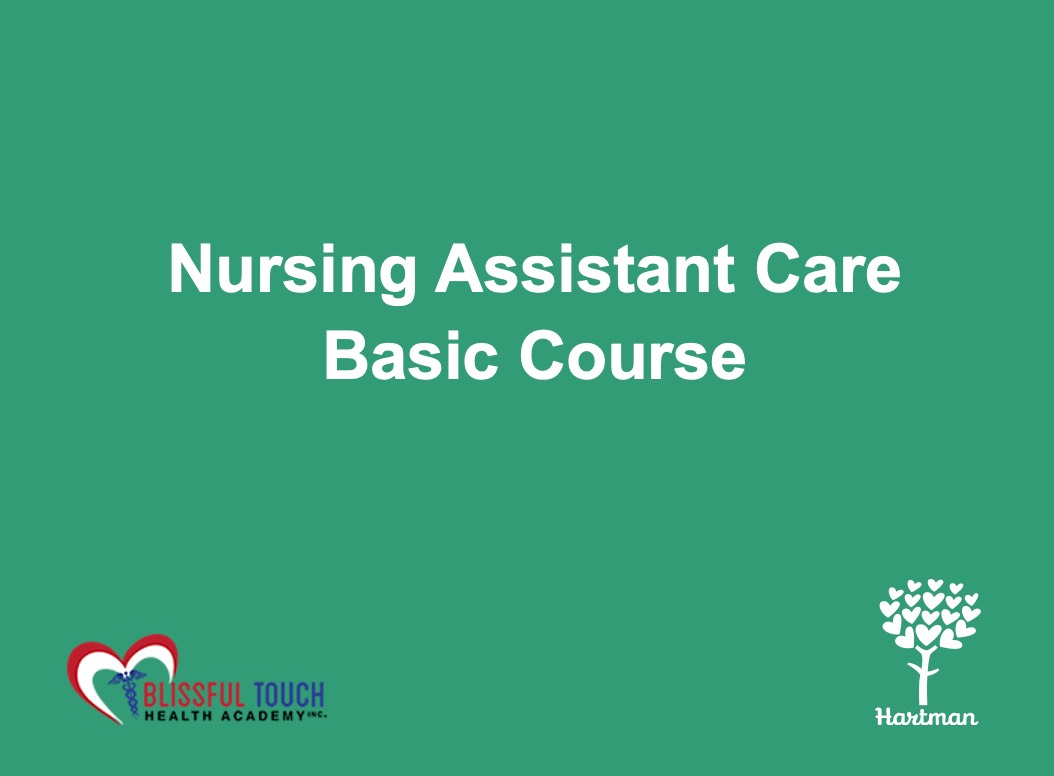Nursing Assisting: A Foundation in Caregiving

About Course
This BTHA course is a comprehensive nursing assistant training which includes information about long-term care, as well as home health care, and some material about subacute and acute care . . .
This content is restricted to subscribers
Course Content
The Nursing Assistant in Long-Term Care
-
Lesson 1.1: Compare long-term care to other healthcare settings
00:40 -
Lesson 1.2: Describe a typical long-term care facility
00:35 -
Lesson 1.3: Explain Medicare and Medicaid
00:25 -
Lesson 1.4: Describe the nursing assistant’s role
00:50 -
Lesson 1.5: Describe the care team and the chain of command
01:05 -
Lesson 1.6: Define policies, procedures, and professionalism
01:10 -
Lesson 1.7: List examples of legal and ethical behavior and explain Residents’ Rights
03:10 -
Lesson 1.8: Explain legal aspects of the resident’s medical record
00:40 -
Lesson 1.9: Explain the Minimum Data Set (MDS)
00:25 -
Lesson 1.10: Discuss incident reports
00:25 -
Bonus Lesson – Preparing for your skill practice
04:21 -
Lesson 1: Skills Practice
-
Lesson 1: Test
Foundation of Residential Care
Understanding Residents
Body Systems and Related Conditions
Confusion, Dementia, and Alzheimer’s Disease
Personal Care Skills
Basic Nursing Skills
Nutrition and Hydration
Rehabilitation and Restorative Care
Caring for Yourself
Final Exam 1
Final Exam 2
Student Ratings & Reviews

No Review Yet
